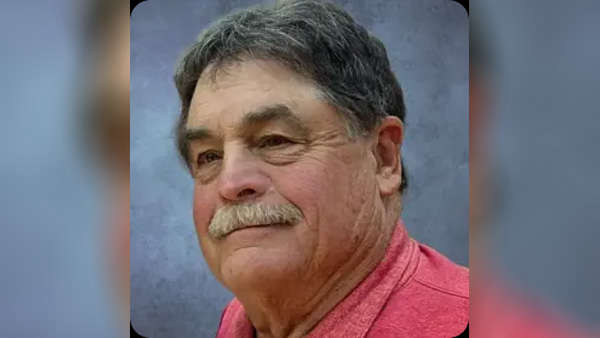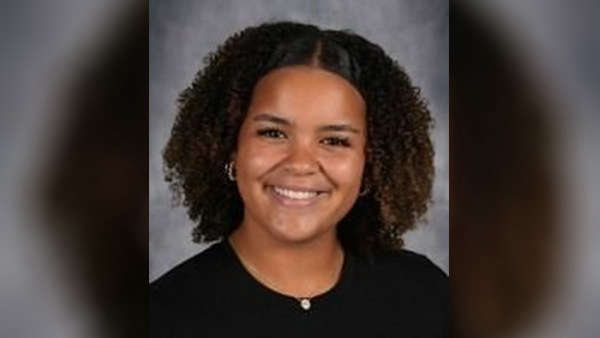Southeastern Indiana State Senator Jeff Raatz’s SB 606 has bipartisan support.

(Indianapolis, Ind.) - Bills dealing with Indiana teacher pay are advancing at the Indiana Statehouse – some with bipartisan support and others without.
Teacher pay has been a main focus of state legislators during the ongoing 2019 lawmaking session. As the number of new teachers receiving licenses decrease, the state’s schools are having trouble finding an adequate number of qualified teachers.
Indiana’s meager starting teacher salary of $35,241, according to 2016-2017 numbers from the National Education Association, is thought to be a main reason fewer young people are getting into teaching.
Southeastern Indiana State Senator Jeff Raatz’s (R-Richmond) Senate Bill 606 proposes to give school corporations more flexibility in deciding how large raises given to teachers should be. It passed the GOP supermajority Senate by an unanimous vote Tuesday.
According to Raatz, SB 606 would remove a provision in the current law that requires certain factors like years of teaching experience, evaluations and degrees in additional content areas to only account for up to 33.33 percent when determining teacher raises. The requirement became law in 2011.
“Removing this requirement from the law would allow each school to decide how factors like these should affect teachers’ salaries,” Raatz said. “It is important to put schools in charge of this decision, as they know their teachers best.”
SB 606 will be considered in the House of Representatives next.
In that Republican-controlled chamber on Monday, representatives passed House Bill 1003 on a 68-27 party line vote.
HB 1003 seeks to set local school district spending goals to direct more funding toward classrooms. Bill author State Rep. Dale DeVon (R-Granger) said if all of Indiana’s school districts meet the target goal of 85 percent of funds going to classrooms instead of administrative costs, teacher pay could increase five percent.
“It is important to recognize that not every school district looks the same, and each has its own set of challenges,” DeVon said. “My legislation would incentivize schools to shift more dollars into the classroom, while also helping the state gather beneficial data to provide a better understanding of how schools spend their dollars on educational expenses.”
State Rep. Tonya Pfaff (D-Terre Haute) asserts that HB 1003 won’t increase teacher pay, but will require school districts to do more with less.
“It would ask school corporations to choose between letting go of faculty and staff that work behind the scenes to keep our schools running or paying teachers more,” said Pfaff. “To me, that is inexcusable. Why can’t we simply just pay our teachers more?”
Also on Tuesday, Indiana Governor Eric Holcomb announced the formation of his Next Level Teacher Compensation Commission. According to the governor’s office, the panel will deliver the recommendations to the governor and the General Assembly prior.
Critics have knocked the governor’s commission for not including a single current teacher among the business, college, and nonprofit executives on it. A separate advisory council to the commission does include one active teacher, as well as Indiana State Teachers Association executive director Dan Holub and two school district administrators.
ISTA President Teresa Meredith said the organization is disappointed that a current K-12 teacher is not on the commission, but it does appreciate Holub’s inclusion on the advisory council.
“As we call on lawmakers to take immediate action on increasing teacher pay this legislative session, we are hopeful that the commission and its advisory council will find the long-term solutions needed to make Indiana a regional leader in teacher compensation once again,” said Meredith.
Many lawmakers and teachers unions have been asking for action on teacher pay to be taken this year, but Holcomb has been taking a more measured approach to the issue. The commission’s recommendations won’t be considered until the 2021 legislative session.
The Republican governor has proposed increasing K-12 funding by two percent in the first year of the state’s next biennial budget, followed by a two percent increase in the second year. He has also proposed paying off schools’ pension liability in order to free up $140 million for districts over the next two years.
RELATED STORIES:
Ind. Lawmaker Wants To Give Schools More Flexibility In Determining Teacher Pay Raises
Gov. Holcomb Backs Hate Crime Legislation, Better Teacher Pay, SEI Port In 2019 State Of The State
ISTA Wants Better Teacher Pay Approved In 2019
Up To $30K In Scholarship Money Available To Future Teachers

 Police Searching for Stolen Vehicle from Amoco in St. Leon
Police Searching for Stolen Vehicle from Amoco in St. Leon
 Louisville Man Facing Burglary, Rape, & Sodomy Charges in Boone County
Louisville Man Facing Burglary, Rape, & Sodomy Charges in Boone County
 Rainbow Bridge Memorial Opens in Harrison to Honor Deceased Pets
Rainbow Bridge Memorial Opens in Harrison to Honor Deceased Pets
 NKY Educator Named Recipient of National Art Education Leadership Award
NKY Educator Named Recipient of National Art Education Leadership Award
 East Central High School Horticulture Plant Sale Dates Announced
East Central High School Horticulture Plant Sale Dates Announced
 Ralph Meyer to be Added to National Fallen Firefighters Memorial
Ralph Meyer to be Added to National Fallen Firefighters Memorial













